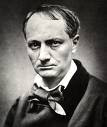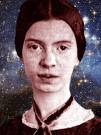You know that gap between perception and reality, that differe(/a)nce between the perceived and the Lacanian Real, that abyss between the thing-as-known and the thing-in-itself (or as I like to call it, the "ding 'n' sitch"), that problem that has exercised philosophers since Descartes (and concerned them since the long-ago toga-clad beginnings of speculative thought), that was a crux for Kant and Hegel, and licensed the skepticism of the poststructuralists? Remember that deal- and mind-breaking dilemma?
Well, it turns out to have been terribly oversold, and Darwinian evolution holds the key to understanding why. Starting like Descartes and Sartre at the obvious fact that we exist (and putting a temporary pin in the deconstruction of the subject, another greatly oversold idea), we can conclude that the human sensorium models a world very close to reality. The middle step in this progression from existence to the marriage of perception and reality is the fact that we exist to reason about such things. If our perceptual apparatus had not been naturally selected to adequately perceive the reality 'out there,' some fierce predator would have come from 'out there' and eaten our early ancestors, thus rendering our philosophies impossible. To state the argument more schematically:
1. We exist in this world.
2. We have thus been naturally selected over millions of years to exist in this world.
3. A perceptual apparatus that inadequately modeled this world would have been a fatal defect in terms of natural selection.
4. Therefore, our perceptual apparatus adequately models the world.
If our sensoria had not been naturally selected to perceive "the Real," our species would have been wiped out eons ago by unperceived predators. Stepping lightly over an argumentative abyss (the needling question of how well "perception adequate for survival" equates to "perception congruent to reality"), I therefore suggest that we have evolved the ability to perceive the world so well that the gap between the things we see and the things in themselves (whatever, if anything, that might mean...) is a distinction without a difference, a Derridean differance that makes no difference, as negligible as the experimental error in every tailor's tape measure. It is not, that is to say, a question that should burden anyone outside the Philosophy Department (or inside it, for that matter...). The world we see is, for all intents and purposes, the world as it is. The next time you open your eyes, remember to tell yourself, "Welcome to the desert of the real."
But what about the world a lion sees? (I recall those great paragraphs Hemingway writes from the hunted beast's point of view in "The Short, Happy Life of Francis Macomber.") What about the waterworld a fish perceives, or a bird's airy terrestrium? It appears that human and animal perceptions, given the massive differences among them, all converge upon the same 'real world.' We perceive in leafy, barky detail the same tree the stalking cat swerves to avoid; we see outlined against blue sky the thin, nervously vibrating branch upon which a bird alights. The biggest difference may be that human beings perceive both more specifically, in a way that individuates objects, and more globally, in a way that integrates all objects into a perceived world. Whether this is true and whatever evolutionary advantages it may have conferred are questions way beyond my paygrade. (Not that that has ever stopped me.)
The evolutionary argument for the efficacy of perception seems rock-solid to me (probably because it appeals to my old-fashioned 19th-century materialism), and it doesn't appear to be another example of the Darwinian 'paradigm creep' that defines contemporary intellectual culture, the tendency to throw Darwin/Dawkins/Dennett (The Three D Boyz) at everything and see what sticks.
Friday, July 19, 2013
Subscribe to:
Post Comments (Atom)










1 comment:
At the risk of philosophical wankery, a retort:
This conundrum also hinges on what one is trying to perceive, the scale or scope of reality one is attempting to interpret. For a brain that has the luxury of attending to matters other than evading predators, finding food, shelter and an agreeable fuck, that argumentative abyss is not so lightly stepped over. If your tailor's tape is used to measure a koch curve, that seemingly negligible metrological error may in fact be of astronomical orders of magnitude. The human brain has evolved to quite adequately picture reality on the scale of our everyday theater; but when it comes to something like the quantum scale, our pictures, can only be applied by way of loose analogy; which, as I understand it, was in part the point of Bohr's complementarity principle. (The other part being concerned, once again, with the nature of our measuring instruments.)Reality at this level of analysis is mostly grasped as mathematical abstraction, not sensorium. Yet this very abstraction underwrites our fundamental empirical account of the universe. And if this isn't a conundrum, I don't know what is.
Post a Comment